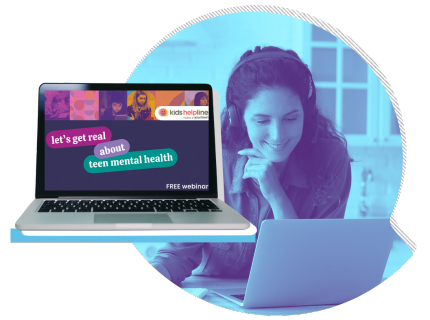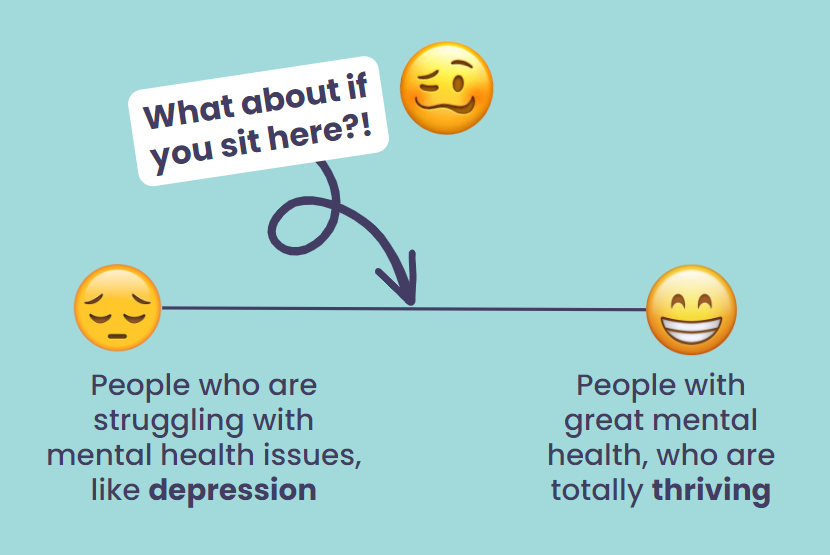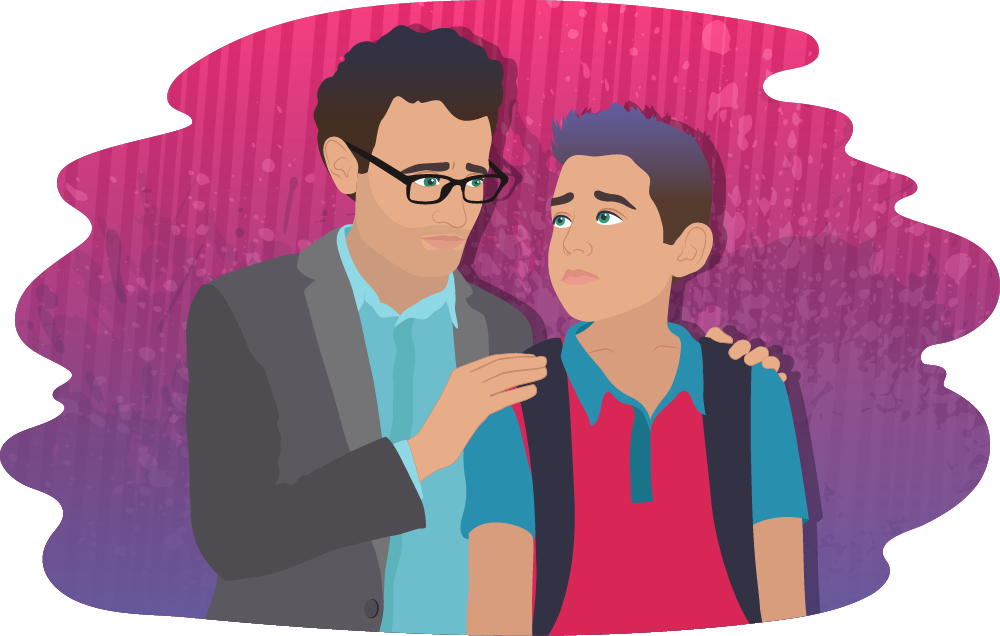1 in 5
people in Australia live with mental health issues every year
It's hard to know how to help your child when they're having mental health challenges. We're here to help.

First things first: well done for reaching out for support.
Secondly, know you're not alone in your experience. Mental illnesses in kids and teens are far more common than many people realise.
Having a child experiencing psychological distress is very challenging in many ways. Fortunately, many families have faced mental health challenges and found a way through.
people in Australia live with mental health issues every year
of Australians will experience a mental health issue in their lifetime.
of mental illness appears by age 14
of mental illness appears by age 24
You know your child best. If your gut feeling is that something isn’t quite right, trust it – and never do nothing.

Topics include:
- The stuff your teen doesn’t tell you
- Secrets of the teen brain
- A counsellor’s tips for mental health
Good mental health isn’t the absence of a mental illness. Children and young people who feel a bit ‘meh’, like nothing really excites them anymore, and like they’re just tired and ‘over it’ may be languishing – and this increases their risk of developing an anxiety disorder and doubles their chances of becoming depressed.
It’s never too early to get professional help and support. Think of mental health a bit like a sport: even the best athletes have a coach to help them maintain and improve their physical health and performance.
Mental health support is like that – a bit of support here or there, even if things are good, or when things are starting to feel a bit so-so, can help prevent things getting worse.

social (breakups, friend or family conflict, moving school or home)
biological (genetics, family history)
physical (diet low in nutrients, poor quality or lack of sleep, low levels of exercise, medical, pain issues or injuries, etc)
physical (nutrient-rich diet, enough and good quality sleep, regular exercise)
psychological (coping strategies, stress management strategies, strategies to develop resilience, interests and hobbies)
social (connections and relationships with family and friends; in fact, good quality relationships are one of the best predictors of good mental health, and mental illness recovery
It's ok to feel stuck or confused about how to help at times
Some people do have a mental health issue for life, but many don’t. People can completely recover from many different mental health issues. For those people who have a lifetime diagnosis, there are many things that can help them have a great quality of life.
Mental health stigma is unfortunately still alive and well. It’s understandable if you’re worried that your child might be judged or mistreated as a result of having a mental health issue.
The good news is that awareness and support of mental health has increased greatly. And you can be a role model for your child, and for other people, around supporting a young person with a mental health issue. Many people who go through mental health issues experience changes in relationships in positive ways, too!
Absolutely not! In general, reflecting on your parenting, feeling bad about things, etc. and even being here reading this article, shows that you have insight and care about your child/ren.
Let’s just say for argument’s sake that you were a terrible parent. We know (according to research) that mental health has many causes. There are people who have terrible parents and childhoods, who grow up resilient and with great mental health. And there are people with amazing parents, who have mental health issues.
The most important moment is the present one. If you’ve made mistakes, or used a parenting style that you think may not have been the best, it’s not too late to do things differently.
All relationships have rupture and repair – and it’s the comeback that counts! You have an opportunity to support your child through a tough time. That's a privilege and chance to strengthen and deepen your relationship.
There's a misconception that psychologists and counsellors will 'blame the parents'. There's also a misconception that people go to therapy and talk badly about people in their lives (painting them in a bad light).
Most people in therapy or counselling are there trying to gain insight into themselves and solve problems. People in counselling are generally very open, honest, empathetic towards others in their lives, and reflective on their own behaviour.
Professionals are trained to look at things holistically. Counsellors want to work collaboratively with people we talk to ensure the best outcome for them.
We know that one of the most important relationships in anyone's life is their relationship with their parents, and that you cannot overestimate the value of having a parent who cares.

Absolutely not! In general, reflecting on your parenting, feeling bad about things, etc. and even being here reading this article, shows that you have insight and care about your child/ren.
Let’s just say for argument’s sake that you were a terrible parent. We know (according to research) that mental health has many causes. There are people who have terrible parents and childhoods, who grow up resilient and with great mental health. And there are people with amazing parents, who have mental health issues.
The most important moment is the present one. If you’ve made mistakes, or used a parenting style that you think may not have been the best, it’s not too late to do things differently.
Here are some more counselling and crisis support options:
Call Kids Helpline on 1800 55 1800 (for young people up to the age of 25)
Call the Suicide Call Back Service on 1300 659 467 (for people over the age of 15)
Make an appointment to see a GP, psychologist or counsellor
Give Parentline a call in your local State or Territory
Find more digital services and resources at Head to Health
How long can they wait when in crisis?
Nearly 70% of all Kids Helpline counselling sessions are provided outside normal business hours, late in the evening or over the weekend.
Our professional counsellors are often the last line of support when there is limited after-hours mental health support available.
Supporting a child who is thinking of suicide
As a parent, it’s frightening to hear your child talk about ...
READ MEAnxiety in kids and teens
Parenting a child with anxiety is tough, but you don't have to ...
READ MEDepression in kids and teens
You might be unsure whether your child is just sad or if ...
READ MEMental health myths & facts
There's a lot of information about mental health and wellbeing out there, ...
READ METalking helps! We’re here for your kids.
No problem is too big or too small.
We're here 24 hours a day, 7 days a week